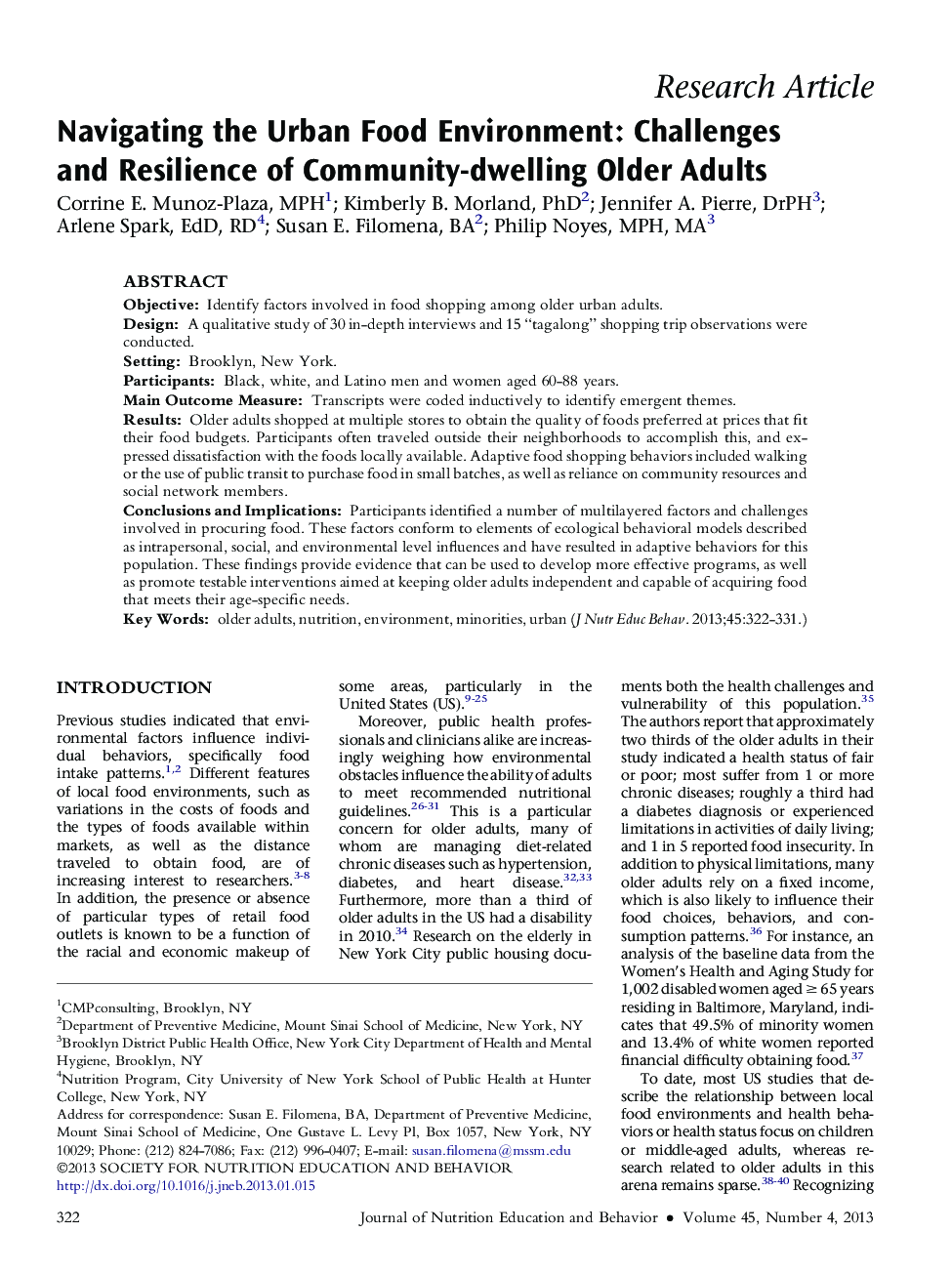| Article ID | Journal | Published Year | Pages | File Type |
|---|---|---|---|---|
| 361396 | Journal of Nutrition Education and Behavior | 2013 | 10 Pages |
ObjectiveIdentify factors involved in food shopping among older urban adults.DesignA qualitative study of 30 in-depth interviews and 15 "tagalong" shopping trip observations were conducted.SettingBrooklyn, New York.ParticipantsBlack, white, and Latino men and women aged 60-88 years.Main Outcome MeasureTranscripts were coded inductively to identify emergent themes.ResultsOlder adults shopped at multiple stores to obtain the quality of foods preferred at prices that fit their food budgets. Participants often traveled outside their neighborhoods to accomplish this, and expressed dissatisfaction with the foods locally available. Adaptive food shopping behaviors included walking or the use of public transit to purchase food in small batches, as well as reliance on community resources and social network members.Conclusions and ImplicationsParticipants identified a number of multilayered factors and challenges involved in procuring food. These factors conform to elements of ecological behavioral models described as intrapersonal, social, and environmental level influences and have resulted in adaptive behaviors for this population. These findings provide evidence that can be used to develop more effective programs, as well as promote testable interventions aimed at keeping older adults independent and capable of acquiring food that meets their age-specific needs.
